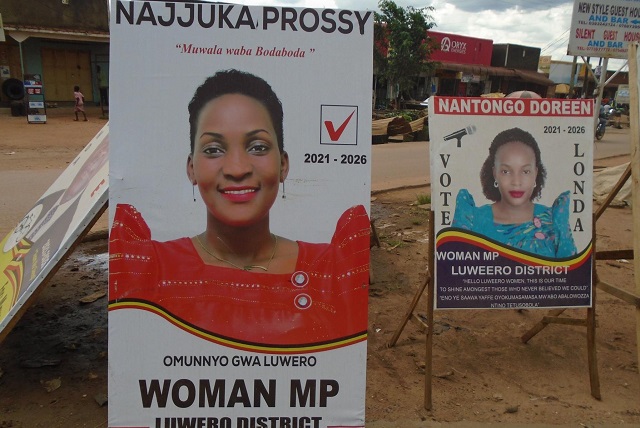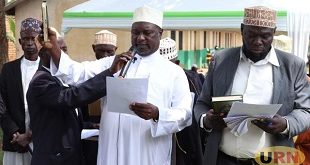
Luweero, Uganda | THE INDEPENDENT | Aspirants for parliamentary seats in Luweero district have cited monetization of campaigns as the biggest challenge they are facing ahead of the 2021 general elections.
According to the Electoral Commission roadmap, the nomination for parliamentary candidates is scheduled for Monday October 12 and Tuesday October 13. Candidates will then be expected to campaign from October 20, 2020 to January 8, 2021, although these will be restricted to virtual platforms and meetings limited to fewer people.
But the female aspirants fear that they could be ejected by the high demands for money from the voters. Prossy Najjuka, one of the parliamentary aspirants says that they are disadvantaged by the large geographical coverage of their constituencies because for each group that they meet, they are expected to spend. The district has 606 villages.
Najjuka explains that in every meeting, people are demanding for transport refund or drinks which can’t be sustained in the entire campaign period. Najjuka adds that even where she opts to engage in small meetings and greet sessions of voters at their workplace, she is asked for money.
Faridah Nakalawa, another aspirant for the women’s parliamentary seat says that she experienced the same challenge during the party primaries where some voters were bribed during campaigns and on polling day, a result of which they ended up voting for specific candidates.
Nakalawa however has picked nomination forms hoping that the Electoral Commission will be able to regulate commercialization and stop voter bribery. Some women have also failed to offer themselves to contest on the seat citing high campaign costs.
Erasto Kibirango, one of the contestants for the district chairman’s seat blames National Resistance Movement candidates for commercializing elections because they have no clear ideology to sell to voters. Kibirango instead asked voters to contribute money to those candidates they think will represent their views.
Emmanuel Lwasampijja, a resident of Luweero town says that people have resorted to asking for money from aspirants because they also believe they profit in the positions which are campaigning for.
But David Kamugisha, the Luweero district National Resistance Movement registrar has cautioned the party flagbearers to desist from giving out money or other items during campaigns saying this may be used by rivals to challenge their victory.
Section 68 [1] and 4 of the Parliamentary Elections Act 2005 bars candidates from donating money, gifts or other consideration to another person before or during an election with intent, either directly or indirectly to influence another person to vote for them.
A candidate found guilty of the offense faces imprisonment for period not exceeding three years or nullification of their election. A voter who receives any money, gift or other consideration under subsection (1) also commits the offence.
Recently the chairperson of the Electoral Commission (EC), Justice Simon Byabakama said that commercialization of politics had not only led to electing incapable leaders but also makes the cost of organizing by-elections expensive in case court nullifies the elections of a candidate.
*******
URN
 The Independent Uganda: You get the Truth we Pay the Price
The Independent Uganda: You get the Truth we Pay the Price



